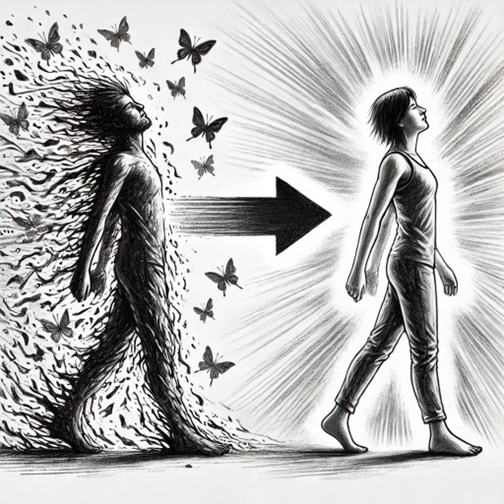Going through a difficult and/or traumatic time can completely
scramble your thinking capacity and
ability to make sense of everything that is
happening.
Allowing yourself to be thrown in to this roller coaster of
though and emotion does not help to resolve the challenges that you are
experiencing, and it becomes more challenging if you are responsible for the well-being
of other, while can barely stand up straight yourself.
Guiding people through such a period can be complicated, especially when such a person is close to you. How do you then generate some kind of rationality in a situation that is completely void of anything rational – this is what I suggest:
First you must write. Journaling is significantly important. Writing stuff down forces you to work from a maddening 30 000 plus thoughts a day that is racing through your brain, not allowing you any clear though or action, to writing at a pace of 50 odd words per minute. It forces you to make sense of what is happening by forcing all these thoughts through a funnel – to a sentence that (sort off) make sense.
Next step is to determine which of these thoughts need some
kind of action – getting through difficult time requires you to make decisions
and act, otherwise you will sink into the well of desolation. Use the Wheel of Life to structure these thoughts
and then prioritise. Identify what needs
to be attended to first – and start by taking small steps.
Use a problem-solving method to get to appropriate solutions. Write the process down. Give every problem a name, gather information,
analyse the problem, identify criteria that you will use to evaluate options,
know what you want to achieve, identify options, evaluate and decide, implement
and make corrective actions as you go along.
Schedule your day, week, month, year – create structure and some
kind of certainty. Schedule every aspect
of your Wheel of Life into your diary – what you schedule become an
objective. If you don’t see it, it will
not be done. Start small, but start.
Celebrate every positive result and achievement, so that you
can build your confidence in rebuilding your life. Be brave – fight for yourself. Show up!
Remember – you cannot give what you don’t have!




